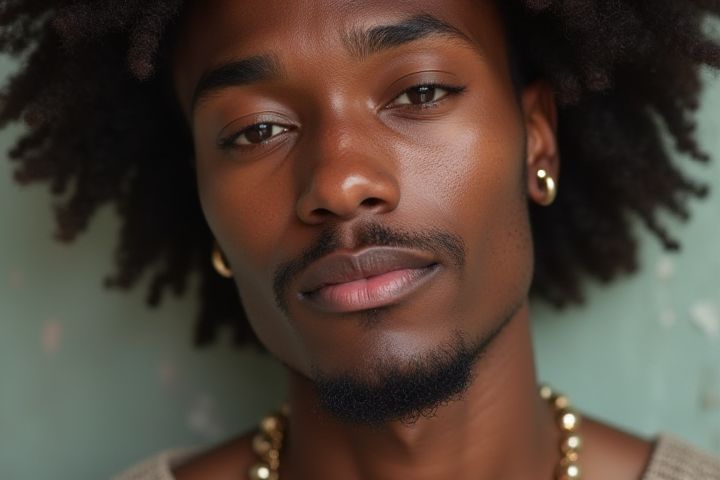
Nigeria has a complex stance on LGBTQ+ rights. Homosexuality is criminalized under both state and federal laws, with penalties that can include imprisonment. Societal attitudes toward the LGBTQ+ community are generally negative, leading to discrimination and violence against individuals based on their sexual orientation. In urban areas like Lagos and Abuja, there exist small, discreet LGBTQ+ networks, yet these face constant risks of persecution. For those exploring LGBTQ+ rights or experiences in Nigeria, it is essential to approach the topic with caution and understand the significant societal challenges present.
Same-sex marriage illegal
Nigeria is not considered gay-friendly, as same-sex marriage is illegal and punishable by law under the Same-Sex Marriage (Prohibition) Act of 2014. This legislation imposes severe penalties, including imprisonment for individuals who enter into same-sex relationships or advocate for LGBTQ+ rights. Public sentiment is largely hostile toward the LGBTQ+ community, leading to widespread discrimination and violence against individuals based on their sexual orientation. As a result, those seeking acceptance and safety often find it challenging to navigate their identities within Nigerian society.
Anti-gay laws exist
Nigeria is not considered gay-friendly, as anti-gay laws are prominently enforced in the country. The Same-Sex Marriage Prohibition Act, enacted in 2014, criminalizes same-sex relationships and imposes severe penalties, including imprisonment. LGBTQ+ individuals often face discrimination, violence, and social stigma, further exacerbating their marginalization. Human rights organizations continuously highlight Nigeria's legal and societal challenges regarding LGBTQ+ rights, emphasizing the need for international advocacy and support.
Public sentiment largely conservative
Nigeria is predominantly conservative regarding LGBTQ+ rights, with public sentiment largely influenced by cultural and religious beliefs that view homosexuality unfavorably. The country enforces strict anti-LGBTQ+ laws, including the Same-Sex Marriage Prohibition Act, which criminalizes same-sex relationships and advocacy. These legal frameworks contribute to widespread stigma and discrimination against the LGBTQ+ community. As a result, safe spaces and social acceptance for individuals identifying as gay are severely limited, impacting their overall well-being and social interactions.
LGBTQ+ discrimination prevalent
Nigeria is not considered gay-friendly, as it possesses some of the harshest anti-LGBTQ+ laws in the world. Same-sex relationships are criminalized, often resulting in severe penalties, including imprisonment, harassment, and violence against individuals in the LGBTQ+ community. Public sentiment generally reflects deep-rooted cultural and religious beliefs that foster discrimination and stigma against sexual minorities. Advocacy groups continue to face significant challenges in their efforts to promote acceptance and protect the rights of LGBTQ+ individuals in Nigeria.
Risk of arrest for LGBTQ+ activities
Nigeria is not considered gay-friendly, with strict laws criminalizing homosexual activities under both statutory and Sharia law in various states. Engaging in same-sex relations can result in severe penalties, including imprisonment and high social stigma attached to LGBTQ+ identities. Human rights organizations report an increased risk of arrest, violence, and discrimination faced by individuals identifying as LGBTQ+. In this hostile environment, advocating for LGBTQ+ rights poses significant personal risks, making it essential for individuals to be aware of these dangers when navigating their sexual identity in Nigeria.
Limited legal protection for LGBTQ+
Nigeria is known for its restrictive stance on LGBTQ+ rights, characterized by limited legal protections for the community. The Same-Sex Marriage Prohibition Act, enacted in 2014, criminalizes same-sex relationships and imposes heavy penalties, fostering a socio-political environment that is largely hostile toward LGBTQ+ individuals. Public sentiment in Nigeria often reflects deep-rooted homophobia, which is influenced by cultural and religious beliefs, resulting in social stigma and discrimination. Consequently, navigating life as an LGBTQ+ individual in Nigeria can be extremely challenging and dangerous, with limited avenues for legal recourse or support.
Cultural and religious influences
Nigeria is predominantly influenced by its diverse cultural norms and strong religious beliefs, which significantly shape attitudes towards homosexuality. The country has a largely conservative stance, with both Islam and Christianity rejecting LGBTQ+ identities, leading to widespread stigma and discrimination. Nigerian laws, particularly the Same-Sex Marriage Prohibition Act, impose strict penalties for homosexual behavior, reflecting societal views that often equate homosexuality with immorality. In many communities, the fear of social ostracism or violence makes it difficult for individuals to express their sexual orientation openly, creating a challenging environment for LGBTQ+ individuals seeking acceptance.
Underground LGBTQ+ communities
Nigeria is known for its strict laws against homosexuality, where same-sex relationships are criminalized, leading to a challenging environment for LGBTQ+ individuals. Despite this, underground LGBTQ+ communities exist, providing support and social networks for members who often face stigma and discrimination. In major cities like Lagos and Abuja, these hidden networks organize safe spaces for social gatherings, advocacy, and mutual support among individuals seeking connection. These underground communities, while operating discreetly, embody resilience and solidarity in the face of adversity, creating a vital lifeline for many.
International criticism of policies
Nigeria's stance on LGBTQ+ rights has garnered significant international criticism, particularly due to laws that criminalize same-sex relationships. The Same-Sex Marriage (Prohibition) Act, enacted in 2014, punishes not only homosexual acts but also advocacy for LGBTQ+ rights, stifling freedom of expression and assembly. Various human rights organizations, including Amnesty International, have condemned Nigeria's policies, highlighting widespread discrimination, violence, and societal stigma against LGBTQ+ individuals. As a result, many LGBTQ+ Nigerians face persecution, leaving few safe spaces within the country and drawing continued attention from global human rights advocates.
Activists face significant challenges
Nigeria is not considered a gay-friendly country, as it has stringent laws against homosexuality, including the Same-Sex Marriage Prohibition Act enacted in 2014. Activists in Nigeria face considerable challenges, including social stigma, legal persecution, and violence, which hinder their efforts to advocate for LGBTQ+ rights. Despite these adversities, a resilient network of organizations works tirelessly to raise awareness and provide support for the LGBTQ+ community. Your understanding of the complex dynamics at play can help promote a more inclusive dialogue surrounding human rights in Nigeria.
